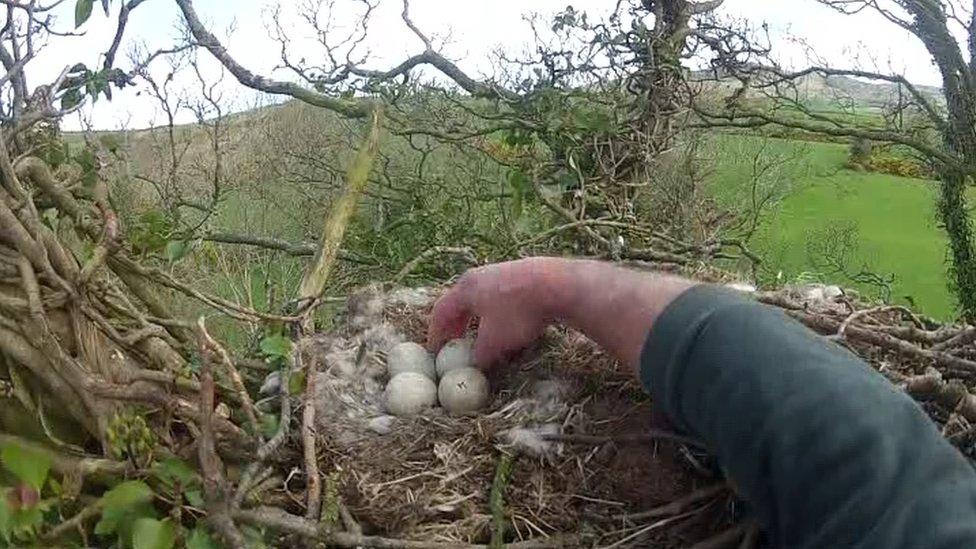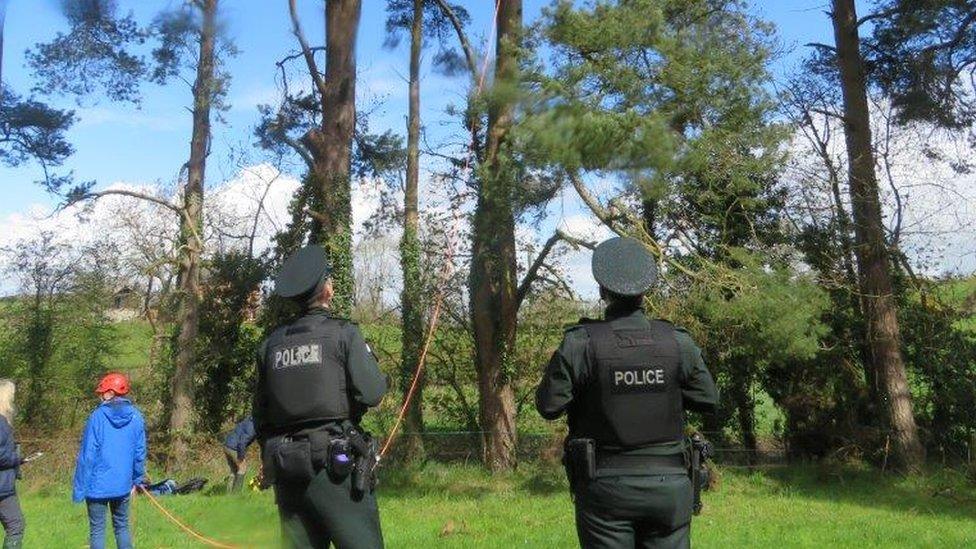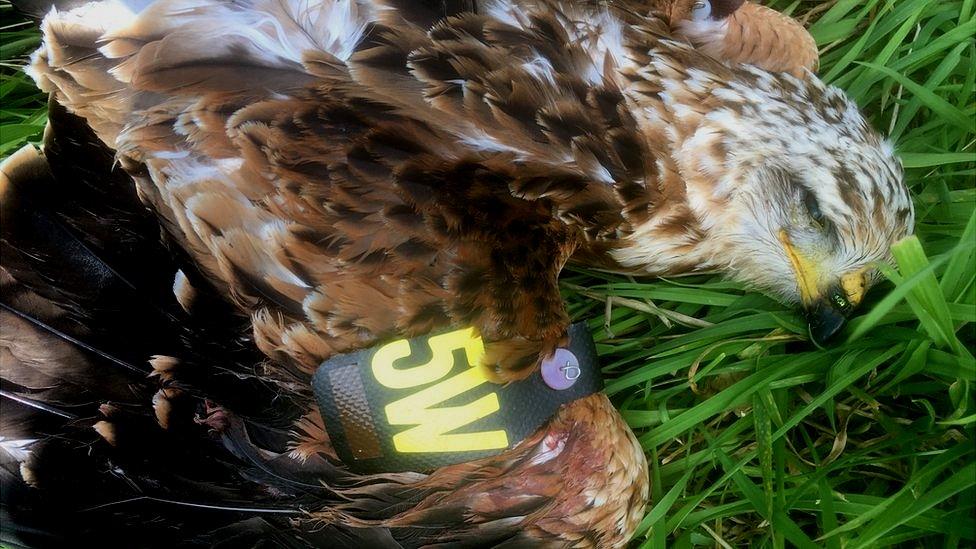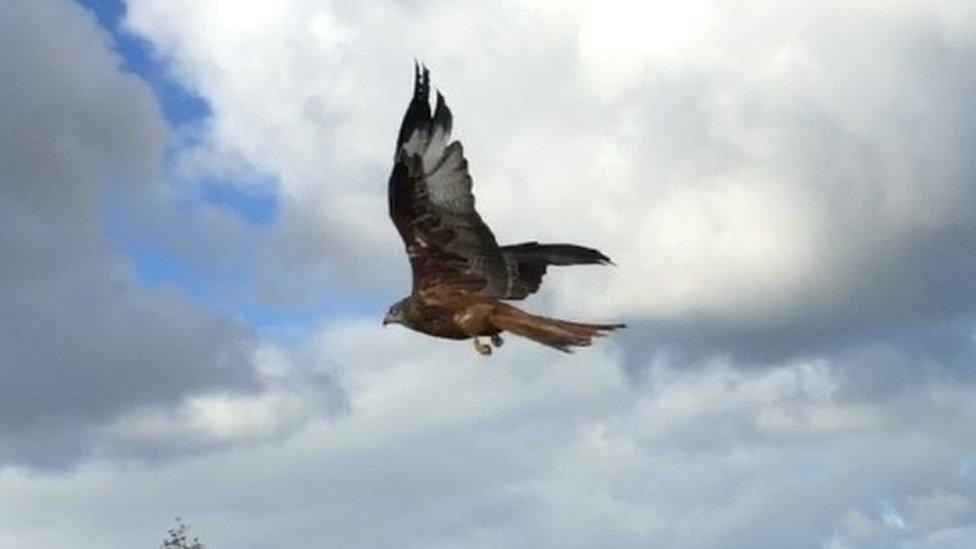Bid to save red kite eggs after birds' death
- Published
Three unhatched eggs were found beneath the body of a red kite
An attempt has been made to save the eggs of some poisoned birds of prey by trying to get other birds to adopt them.
The RSPB used two donor nests to take the eggs from a pair of red kites.
At one location the attempt failed. At the other, the evidence of whether it worked is inconclusive.
But the charity says the attempt was worth it to try to salvage something from a bad situation.
It was the first time it had been tried in Northern Ireland.
Toxicology tests have established that the breeding pair were poisoned.
Neither of the two eggs placed in one donor nest hatched.
At a second nest, a chick did hatch but the charity is not sure whether it was the original egg, or the donor one placed alongside it.
The kites were found in County Down. The female was located dead on the nest, which contained three eggs.

The recovered eggs were relocated to other red kite nests
In a ground-breaking move the eggs were placed in the nests of other red kites.
Relocation
The work was done under licence by the RSPB.
It said the loss of the breeding pair was a "massive blow" to a programme to re-introduce the iconic bird of prey.
About 80 of them were relocated from Wales to Northern Ireland between 2008 and 2010 and some have now begun breeding.
The RSPB's Claire Barnett said the dead kites were a "really good pair with high productivity" and described their deaths as "devastating".
Having recovered the eggs from their own nest, they were kept in an incubator while tests were run to establish whether they were viable.
Egg experts confirmed that at about 21 days, there was a chance they could hatch.
Goodwill
Trained tree climbers were used to put the eggs in the donor nests.
The work had to be done quickly to minimise disturbance to the donor parents.
Two eggs were placed in one nest and the third in another.

PSNI officers were involved in the poisoning investigation
It is only when the RSPB went back to check weeks later that they established whether they'd hatched.
Claire Barnett said the kites, which are scavengers, might have been deliberately targeted or could have picked up a poisoned bait left for a fox.
She said there was a huge amount of goodwill for the egg relocation operation, including from landowners who have nests on their farms.
Red kites have done well since their introduction to Northern Ireland, fledging chicks and extending their range.
Work is going on with schools to build support for the project and there is a plan to put up a camera on a nest site in the near future.
- Published22 August 2017

- Published13 October 2015
